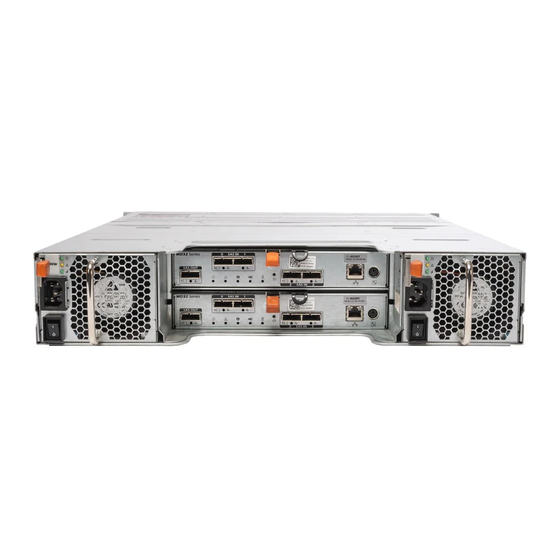•
Microsoft Windows, Red Hat
Enterprise Server. Operating system installations can be either native or
hypervisior guest configurations. Supported hypervisors include Microsoft
Hyper-V™, Citrix
supported versions, see the Support Matrix at support.dell.com/manuals.
•
Administrator or equivalent permissions
Introduction to Storage Arrays
A storage array includes various hardware components, such as physical disks,
RAID controller modules, fans, and power supplies, gathered into enclosures.
An enclosure containing physical disks accessed through RAID controller
modules is called a storage array.
One or more host servers attached to the storage array can access the data on
the storage array. You can also establish multiple physical paths between the
host(s) and the storage array so that loss of any single path (for example,
through failure of a host server port) does not result in loss of access to data
on the storage array.
The storage array is managed by MDSM running on a:
•
Host server—On a host server system, MDSM and the storage array
communicate management requests and event information using
SAS connections.
•
Management station—On a management station, MDSM communicates
with the storage array either through an Ethernet connection to the
storage array management port or though an Ethernet connection to a
host server, which passes management information between the
management station and the storage array using SAS connections.
Using MDSM, you can configure the physical disks in the storage array into
logical components called disk groups and then divide the disk groups into
virtual disks. Disk groups are created in the unconfigured capacity of a storage
array. Virtual disks are created in the free capacity of a disk group.
Unconfigured capacity comprises of physical disks not already assigned to a
disk group. When a virtual disk is created using unconfigured capacity, a disk
group is automatically created. If the only virtual disk in a disk group is
deleted, the disk group is also deleted. Free capacity is space in a disk group
that is not assigned to any virtual disk.
6
Introduction
®
Enterprise Linux
®
XenServer™, and VMware
®
®
, and SUSE
®
. For information about the
Linux

